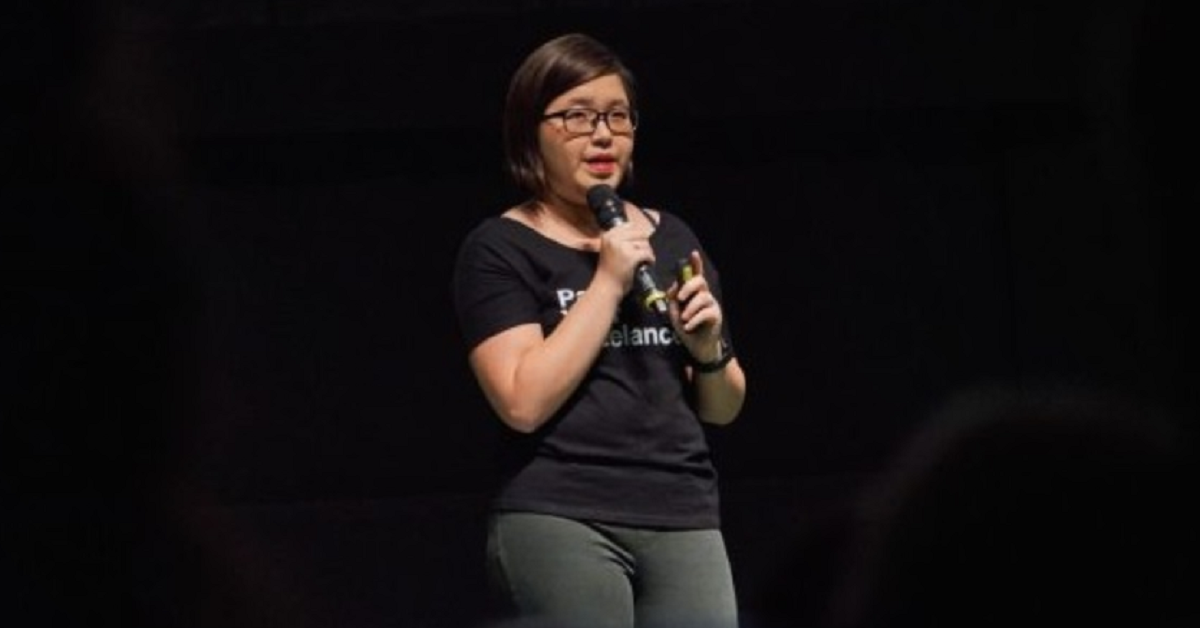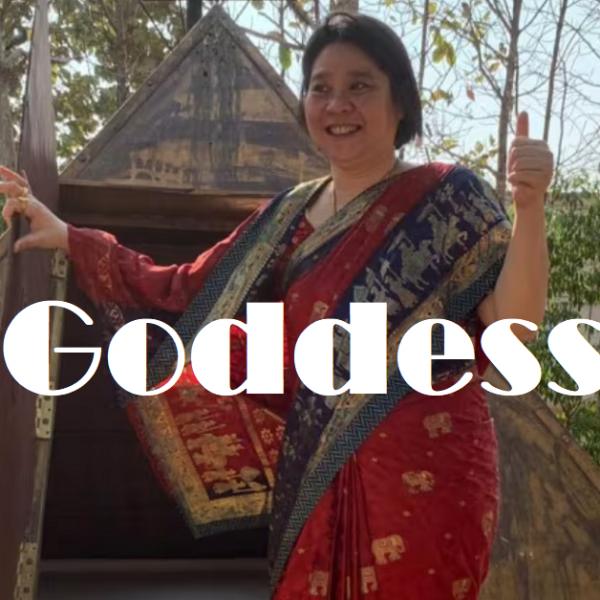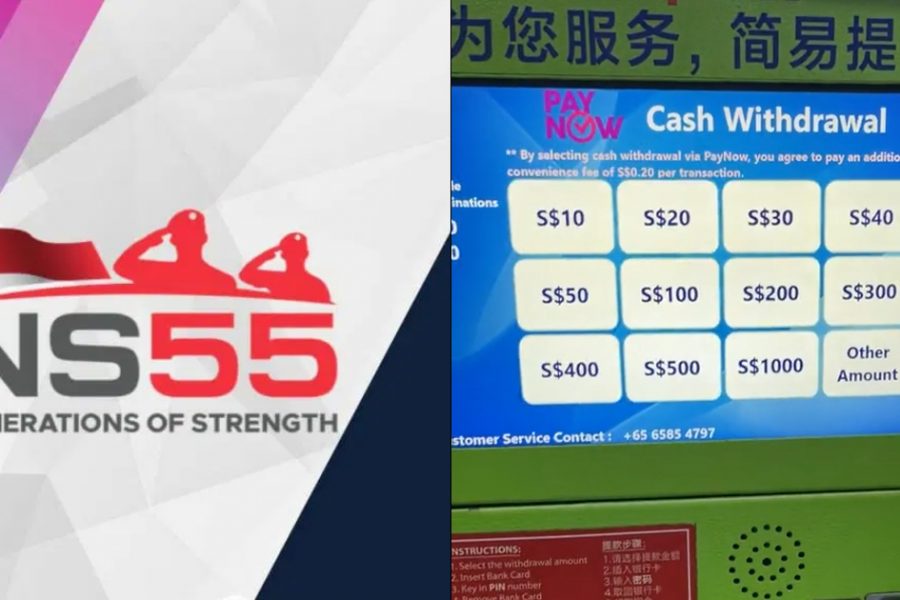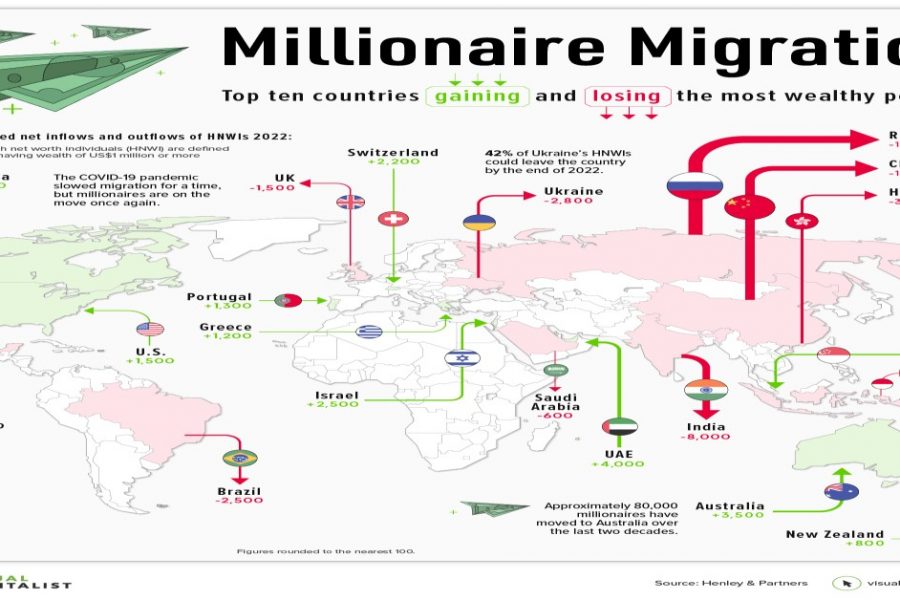Last week, a group of tertiary students marched to the Ministry of Home Affairs to present letters meant for K Shanmugam. They wanted to make clear their objection to the Maintenance of Racial Harmony Bill (MRHA). They were concerned that under this Bill, their support for Palestinians will be penalised and seen as disrupting Singapore’s harmony.
Students who took part in the march were from NUS, NTU, SMU, SUTD, Polytechnics, ITEs and other institutes of higher learning. Activist Kirsten Han was also there and expressed her unhappiness with how the Straits Times characterised them.
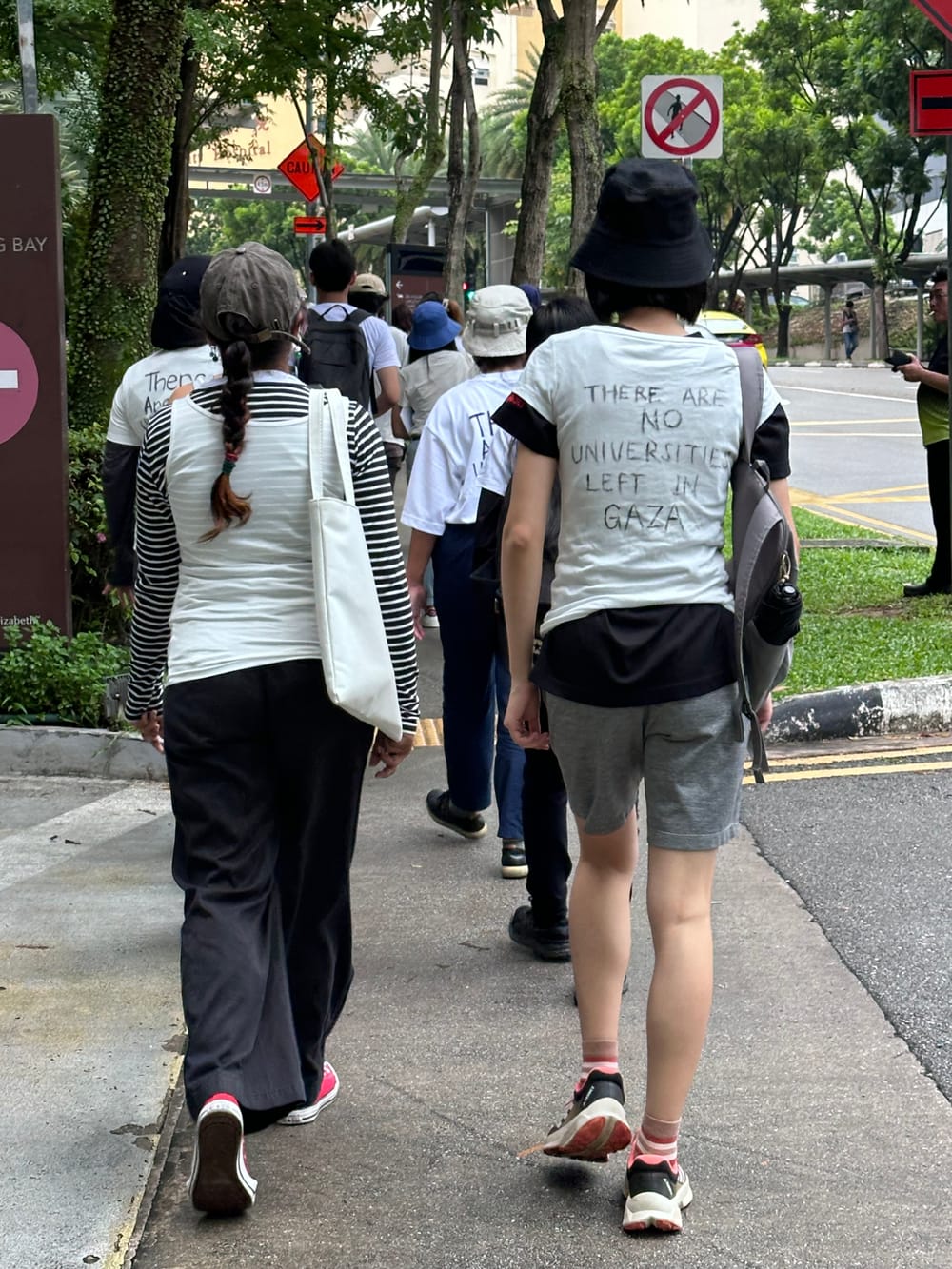
Lag time in reporting
Firstly, she did not understand why ST took so long to report on the march. She noticed that ST journalists were already there taking photos, but only published its article after waiting for the Police to respond. As a “reputable” publication, ST should have jumped on the news immediately. The students were trying to make a point. Delaying the article would diminish the significance of the march. So why did they bother to wait for the Police’s response?
Students, activists not approached for interviews
Secondly, ST journalists did not bother to identify themselves. Worst still, they did not ask students or activists for interviews. They did not care about getting quotes from them.
Students photographed without permission
Thirdly, the journalists reportedly snuck photos of students near the MRT station. One of the photos was of them writing “There are no universities left in Gaza” on t-shirts. They did not ask for permission or inform them that they were taking their photos. What kind of reporting ethic is this? Does ST no longer care about upholding journalistic standards?
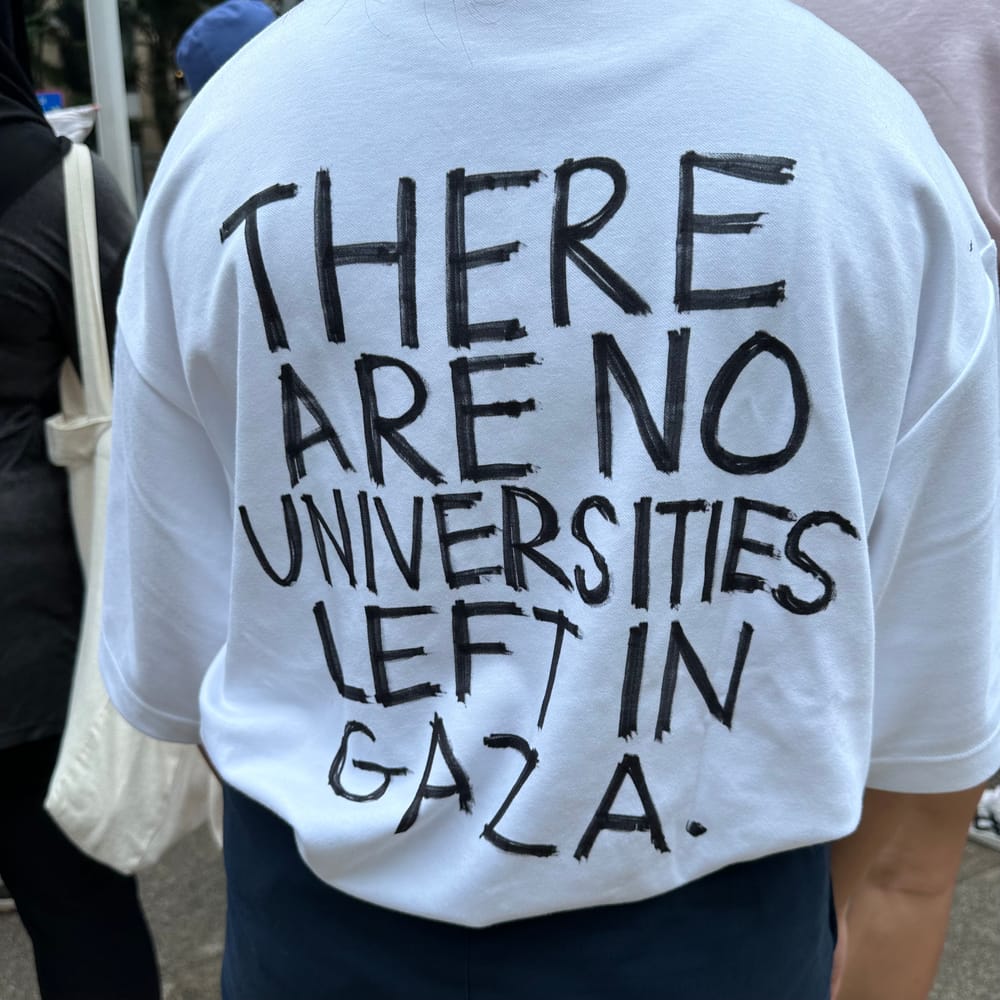
Kirsten Han and Singaporeans are once again let down by our mainstream media. Nevertheless, we can remain optimistic about this group of young activists.
It’s possible that some, if not all, of those who went to MHA today could be called up at some point in the future for investigations under broad laws like the Public Order Act. Despite that, they believe in the importance of collective action and are sensitive to any threat to the already tiny space Singapore and Singaporean institutions allow for activism and organising.
Don’t you agree?
